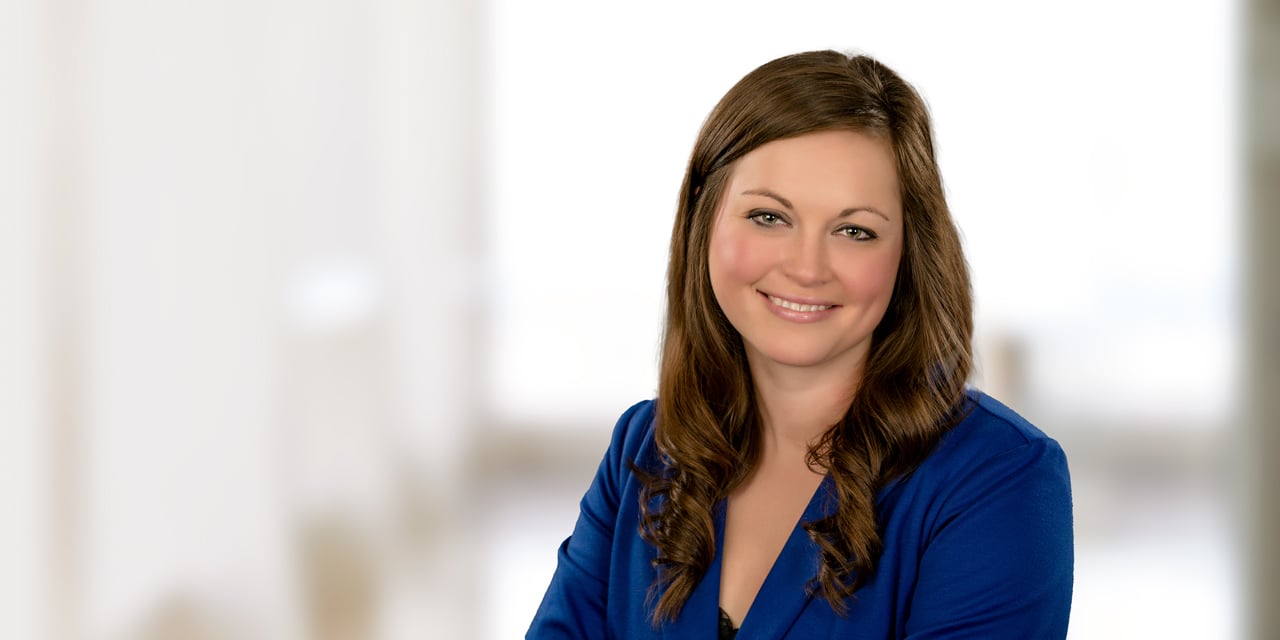
Women Talking Wealth: Sheenah Tonga
In the latest installment of our Women Talking Wealth series, Branch Administrative Supervisor Sheenah Tonga discusses what fertility treatments have taught her about managing finances and her relationships.
Tell us about your background and your role at Baird.
I earned my bachelor’s degree in business administration from Morningside College and spent 10 years as a mortgage broker for a community lender. In that role, I had done business with Baird Advisors Gail Bivens-Rose and Jay Layman (now retired) and got to know them over the years, and when one of their assistants retired, they reached out to me to gauge my interest. (I originally said no, but eventually they wore me down.) I’ve been with The Stuck Bivens-Rose Group ever since and have progressed from an unregistered assistant to a licensed CS to now a supervisor.
How has working at Baird influenced how you manage your finances?
I was always pretty good at managing my money. Before we had kids, I was big on saving – my parents instilled into me the value of money at a young age. After fertility treatments and three kids, though, I’ve found my philosophy has evolved to be more goal-based – how do we best meet a certain savings goal? How do we avoid juggling multiple large expenses at the same time? I’ve found that helping our clients plan for their kids’ and grandkids’ futures has influenced what I'm doing for my own kids.
You mentioned going through fertility treatments. What was that experience like?
I had always wanted to start a family, but after trying for seven years, we knew we would need to come up with a different plan. We considered fostering kids, but the idea of caring for a child for a year only to risk having them be removed was something we didn’t feel suited for. So we decided to see a fertility specialist in Nebraska and progressed from there.
I would say that IVF is as emotionally, physically, spiritually and financially exhausting as it sounds. But it’s expensive for a reason – everything that goes into the miracle of life, I got to see step-by-step under a microscope.
What are some of the financial lessons you learned while doing fertility treatments?
In a way, fertility treatments were like any other big expense – it starts with doing your research and taking the time to plan. We did a lot of research on insurance coverage: what’s covered and what’s not, and what tests, medication and services would require supplemental insurance. You also have to be your own advocate. It’s not enough to hope for the best – you have to ask questions until you understand the ramifications of what’s being discussed.
I know undergoing fertility treatments can be a scary and costly process that couples often aren’t ready for. My husband and I felt it was important that, if we were ever in a position to, we should help others with the expense of treatments. We ended up running a football camp, called Camp Tuff Love, for three years, and ultimately we raised funds to cover some of the fertility costs for five other couples.
Has your perspective changed now that you’re a mom of three boys?
I’m sure most parents would agree that raising kids isn’t cheap! I’ve found that we’ve become more thoughtful and intentional with our money – if there’s a big expense on the horizon, we’ll talk about adjusting our budget and downsizing or eliminating other expenses.
It also brought out some of the personality differences between me and my husband. Not only were the fertility treatments tough, but we also had two miscarriages, which was hard on us as a family. For each of us, there’s an instinct to “be the strong one” and not let the other see how much we’re struggling. We’ve learned that by communicating honestly and making sure we were on the same page, we could get through it together instead of separately.
What personal or financial advice would you give other women about balancing their lives and careers?
I would say, whether it’s IVF or some other issue that’s very personal to you, you’re better served sharing your struggles than keeping them bottled up. Look for support groups or even a sympathetic ear of someone you trust. You might find that your struggles are more common than you think.
During my IVF treatments, I encountered both my college roommate and an old friend from high school while literally sitting in the waiting room at the clinic. Sharing the experience not only relieves some of the anxiety, but it could give you new insights and a new perspective on things.
Learn more about how our female associates continue to inspire and lead our firm.
The information offered is provided to you for informational purposes only. Robert W. Baird & Co. Incorporated is not a legal or tax services provider and you are strongly encouraged to seek the advice of the appropriate professional advisors before taking any action. The information reflected on this page are Baird expert opinions today and are subject to change. The information provided here has not taken into consideration the investment goals or needs of any specific investor and investors should not make any investment decisions based solely on this information. Past performance is not a guarantee of future results. All investments have some level of risk, and investors have different time horizons, goals and risk tolerances, so speak to your Baird Financial Advisor before taking action.